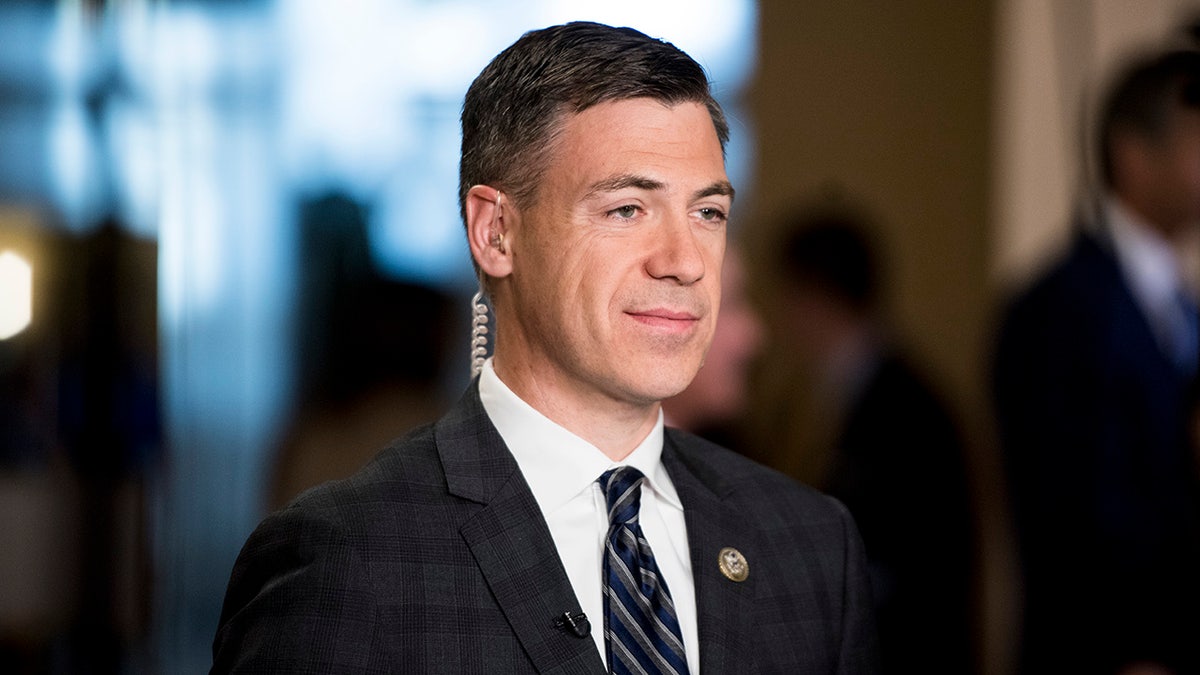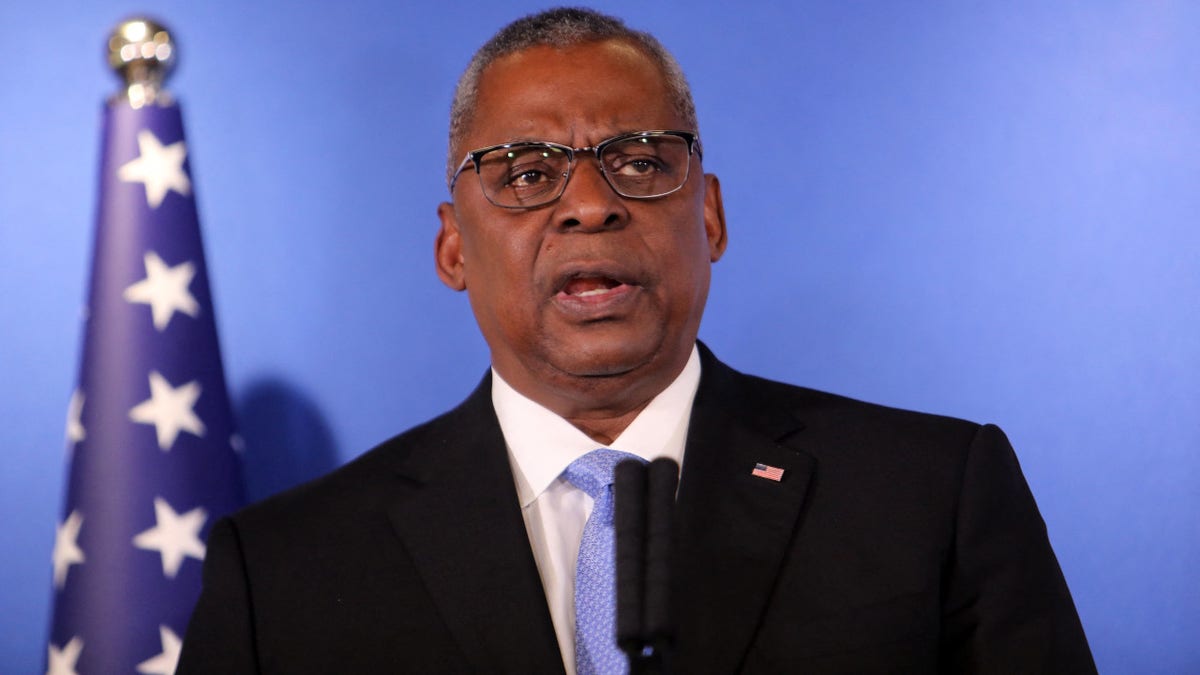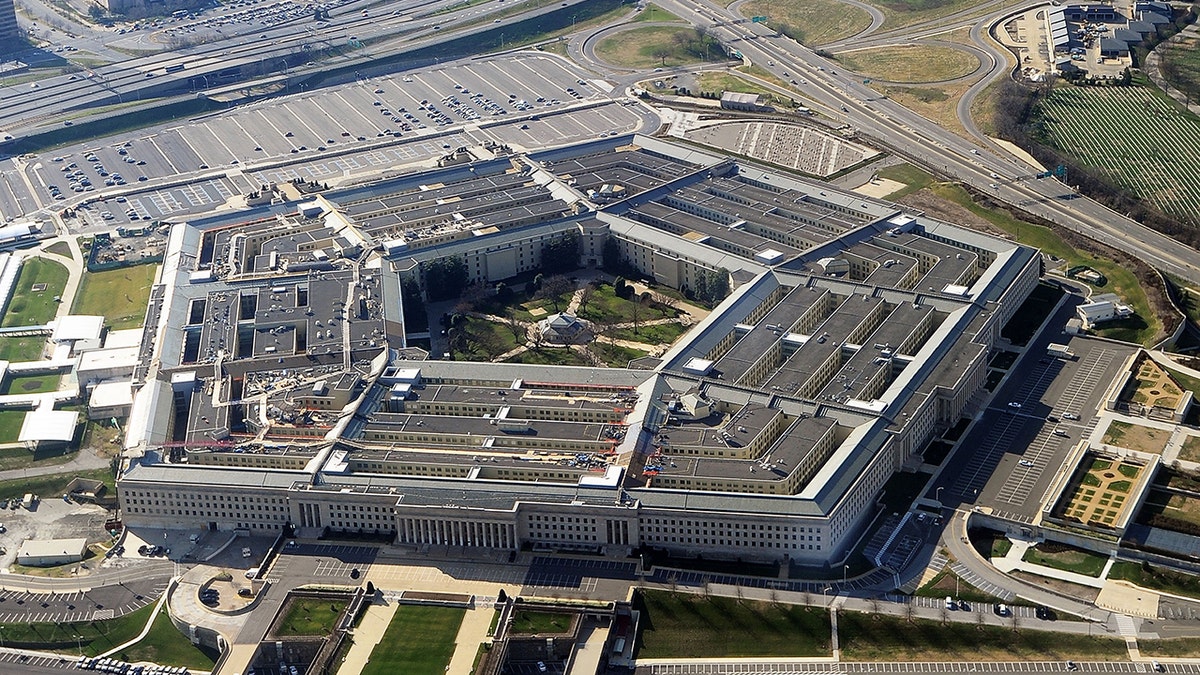Chinese secret police station suspect pictured with NY Democrats
Newly-released images show a suspect accused of running a secret Chinese police station in New York City at a fundraising event with Sen. Chuck Schumer and Mayor Eric Adams. Fox News' Bryan Llenas has the details from Chinatown.
FIRST ON FOX: Indiana Rep. Jim Banks, a Republican, demanded answers from Defense Secretary Lloyd Austin regarding the Defense Department’s (DOD) "inadequate guidance" for colleges seeking waivers to host Confucius Institutes on campus while maintaining department funding.
Banks, who is running for Senate in Indiana, sent Austin the letter on Friday regarding the DOD guidance for colleges looking to host the Chinese Communist Party-linked entities on campus while still receiving federal funds from the Pentagon.
"This guidance is an invitation for the Chinese Communist Party to double down on its influence and espionage operations at U.S. universities," Banks told Fox News Digital.
BILL LIMITING CHINA-BACKED CONFUCIUS INSTITUTES PASSED UNANIMOUSLY BY SENATE

Republican Rep. Jim Banks, who is running for Senate in Indiana, sent Defense Secretary Lloyd Austin the letter on Friday regarding the DOD guidance for colleges looking to host the Chinese Communist Party-linked entities on campus while still receiving federal funds from the Pentagon. (Bill Clark/CQ Roll Call)
"The Biden administration is again undermining Congress’s efforts to combat Chinese espionage and malign influence, just like they did with their fake TikTok bill and ongoing refusal to enforce Section 117 disclosure requirements," the Indiana Republican continued.
"House Republicans are working day and night on oversight against a president who is dead-set on appeasing Communist China," he added.
In his letter, Banks urged "the DOD to revise this inadequate guidance, which undermines Congress’s intent in Section 1062 of the National Defense Authorization Act (NDAA) for Fiscal Year 2021 (FY2021)."
Banks wrote that in "Sec. 1062 of the FY2021 NDAA, Congress prohibited the DOD from providing any funding to any institution of higher education that hosts a Confucius Institute after October 1, 2023" and that the "prohibition followed a more limited provision in the FY2019 NDAA."
"CIs act as agents of the Chinese Communist Party (CCP) on U.S. campuses, spreading Party propaganda, monitoring students and dissidents, and providing China a launching pad for espionage against our nation’s most valuable research and technology," Banks warned.
"Congress intended for the Sec. 1062 restriction to encourage the removal of all CIs from U.S. campuses and to remove the espionage threat which CIs pose to DOD-sponsored research and development (R&D)," he continued.

Rep. Jim Banks pointed out that the March 28, 2023 guidance from DOD "offers conditions by which a U.S. university may receive DOD funds without closing any Confucius Institutes on campus," but while "the guidance imposes some restrictions on CIs for colleges to qualify for waivers, it also introduces significant loopholes and fails to take seriously the threat posed by CIs to national security." (GIL COHEN-MAGEN/AFP via Getty Images)
Banks pointed out that the March 28, 2023 guidance from DOD "offers conditions by which a U.S. university may receive DOD funds without closing any Confucius Institutes on campus," but while "the guidance imposes some restrictions on CIs for colleges to qualify for waivers, it also introduces significant loopholes and fails to take seriously the threat posed by CIs to national security."
"The waivers that DOD grants to universities to continue operating with CIs can theoretically last for an unlimited duration. Per the guidance, DOD also relies on the host universities, which often want to preserve their Confucius Institutes, to notify DOD of any changes to their contract with their CI before DOD reviews their waivers. The waiver guidance also requires universities with CIs to report the foreign travel of any staff involved in R&D but does not require any foreign travel reporting for Confucius Institute employees. While the guidance restricts some Confucius Institute employees from accessing any federally funded scientific data, it does not restrict CI employees from accessing this research if they are also employees of the host university."
Banks wrote that the "guidance also fails to address other loopholes related to DOD funding of universities that host CIs" and that while "DOD imposes some constraints on U.S. universities with CIs, DOD can continue funding foreign universities with CIs without any new waiver process whatsoever."
"The guidance also refuses to specify whether, after October 1, 2023, DOD will continue to pay contracts and grants awarded to universities with CIs that did not receive a waiver," Banks wrote. "Given that many federal grants can last for periods of three to five years, this means that DOD may violate the law by continuing to fund universities that did not even succeed at implementing the modest controls required by this guidance."
Banks blasted the guidance as the DOD "bowing to the wishes of academia and the scientific community to continue their deep ties with China, despite the growing threat of CCP propaganda and espionage" and that much "of the recent guidance derives from a report the DOD commissioned from the National Academies of Sciences, Engineering, and Medicine earlier this year, which argued in favor of such generous waivers to allow Confucius Institutes to continue operating on U.S. campuses."
Banks peppered Austin with questions, including if DOD will "commit to regularly review institutions’ Sec. 1062 waivers to maintain a CI and not only rely on notifications from universities that their contractual relationship with their CIs has changed."
"As with all his correspondence, the secretary will reply to the author of the letter in due time, and we would not have anything further to offer on this," a Pentagon spokesperson told Fox News Digital.

The DOD guidelines state that the department’s Office of the Under Secretary of Defense for Research and Engineering Confucius Institute Waiver Program is responsible for considering and approving or denying waiver applications from any U.S. institution of higher education that is hosting a Confucius Institute and desires a waiver from the prohibition on funding required by Section 1062 of the NDAA for FY 2021." (STAFF/AFP via Getty Images)
The DOD guidelines state that the department’s Office of the Under Secretary of Defense for Research and Engineering Confucius Institute Waiver Program (CIWP) is responsible for considering and approving or denying waiver applications from any U.S. institution of higher education that is hosting a Confucius Institute and desires a waiver from the prohibition on funding required by Section 1062 of the NDAA for FY 2021."
The guidance recognizes Confucius Institutes being linked to the communist Chinese government and that American "institutions of higher education that are hosting an institute meeting the definition of a Confucius Institute may apply for a waiver from the CIWP."
"A host institution applying to the CIWP for a waiver must provide a waiver application package to the CIWP that includes the following: A letter signed by a senior official at the host institution requesting the waiver from the Secretary of Defense and certifying that the host institution meets the CIWP waiver criteria (listed in section 3, below); The documentation required by the CIWP (also listed in section 3, below); and Attestation that the host institution will notify the DoD of any change in the contractual relationship between the Confucius Institute and the host institution."
CLICK HERE TO GET THE FOX NEWS APP
Last month, the Senate unanimously passed a bill this week that clamps down on China’s reach into U.S. universities by tightening restrictions on Confucius Institutes.
The Concerns Over Nations Funding University Campus Institutes in the United States (CONFUCIUS) Act, introduced by Sen. John Kennedy, R-La., targets Chinese-funded cultural centers on college campuses that lawmakers have said are being utilized for propaganda agendas.
Fox News Digital's Caitlin McFall contributed reporting.






















